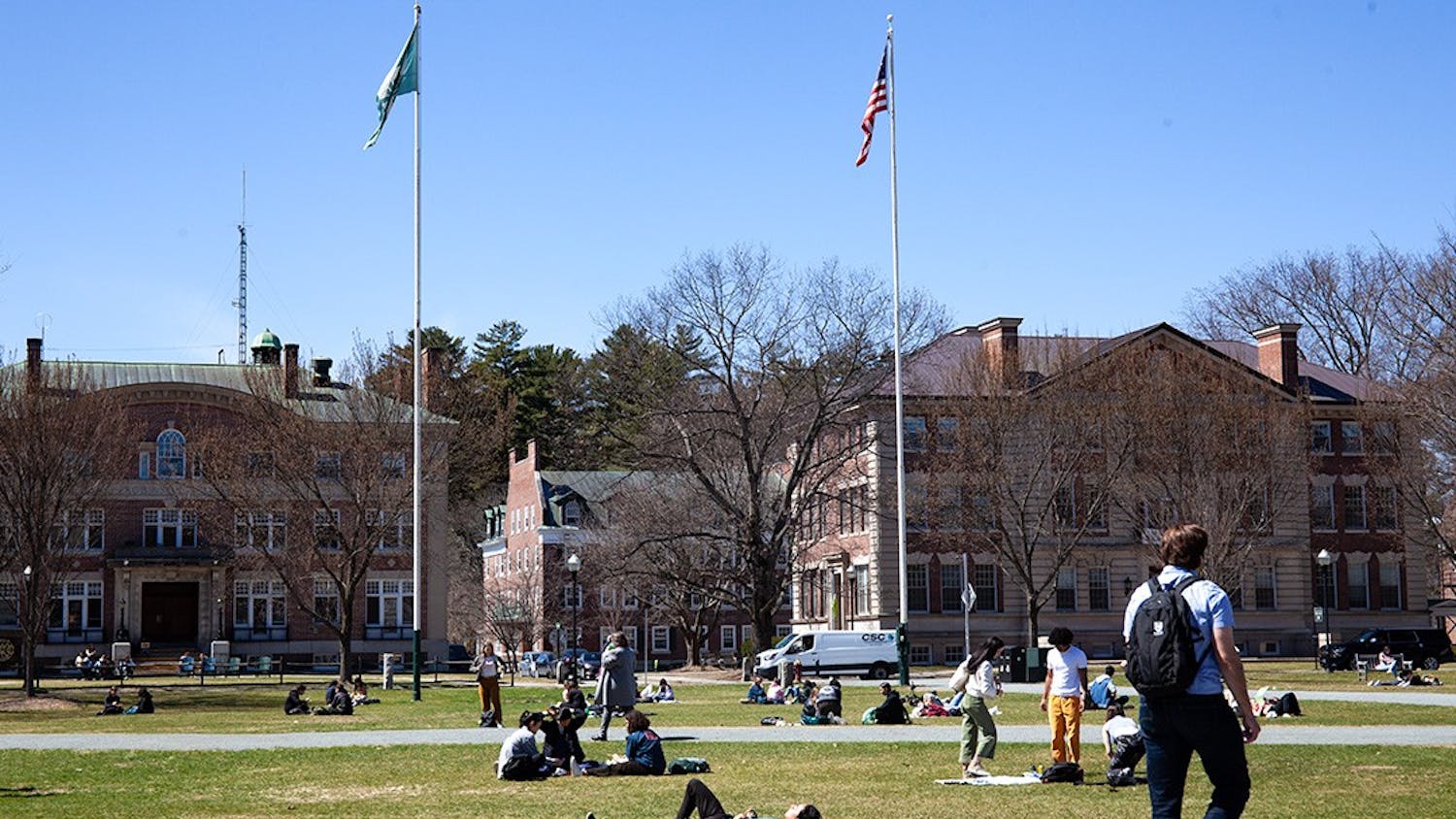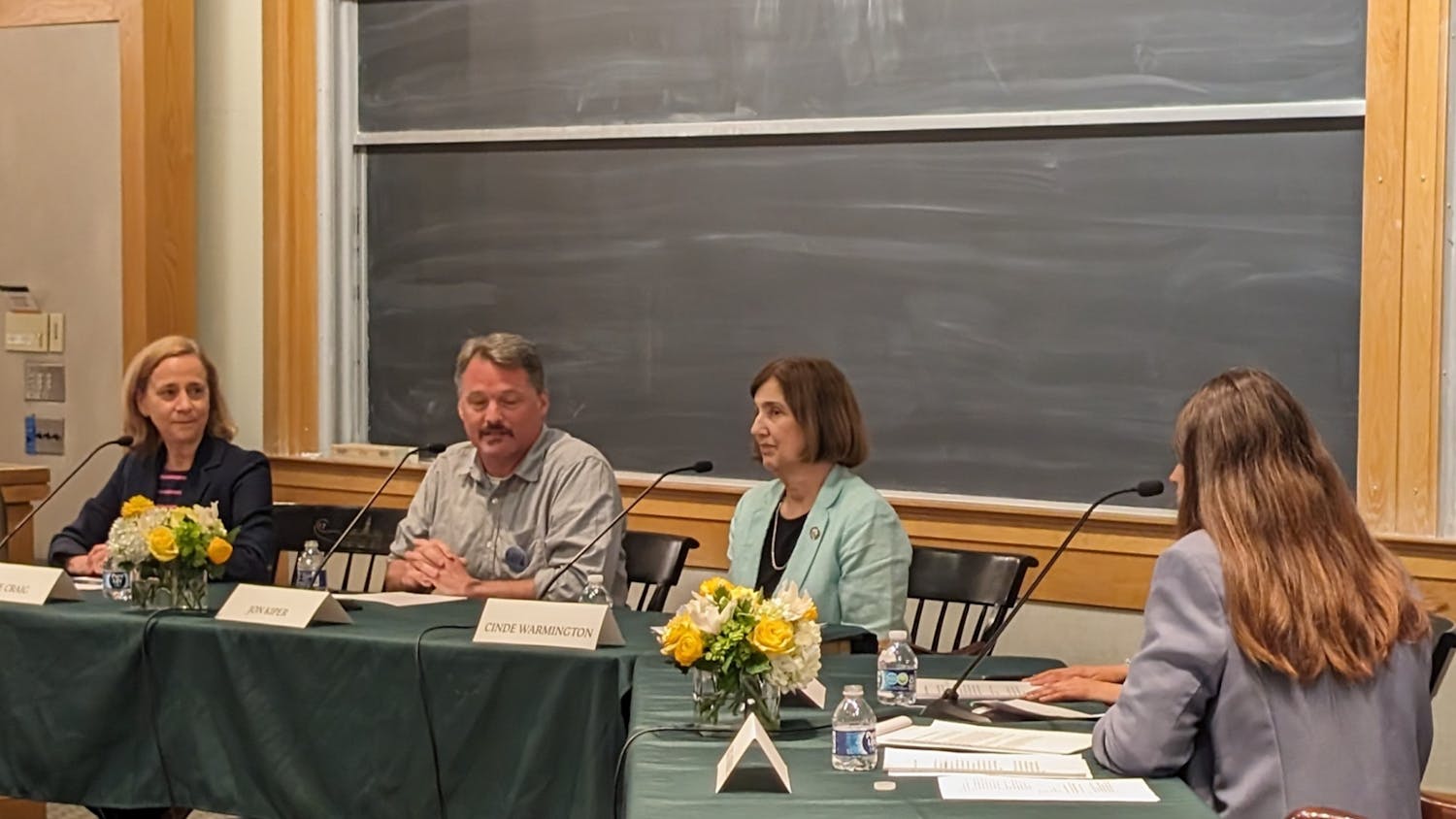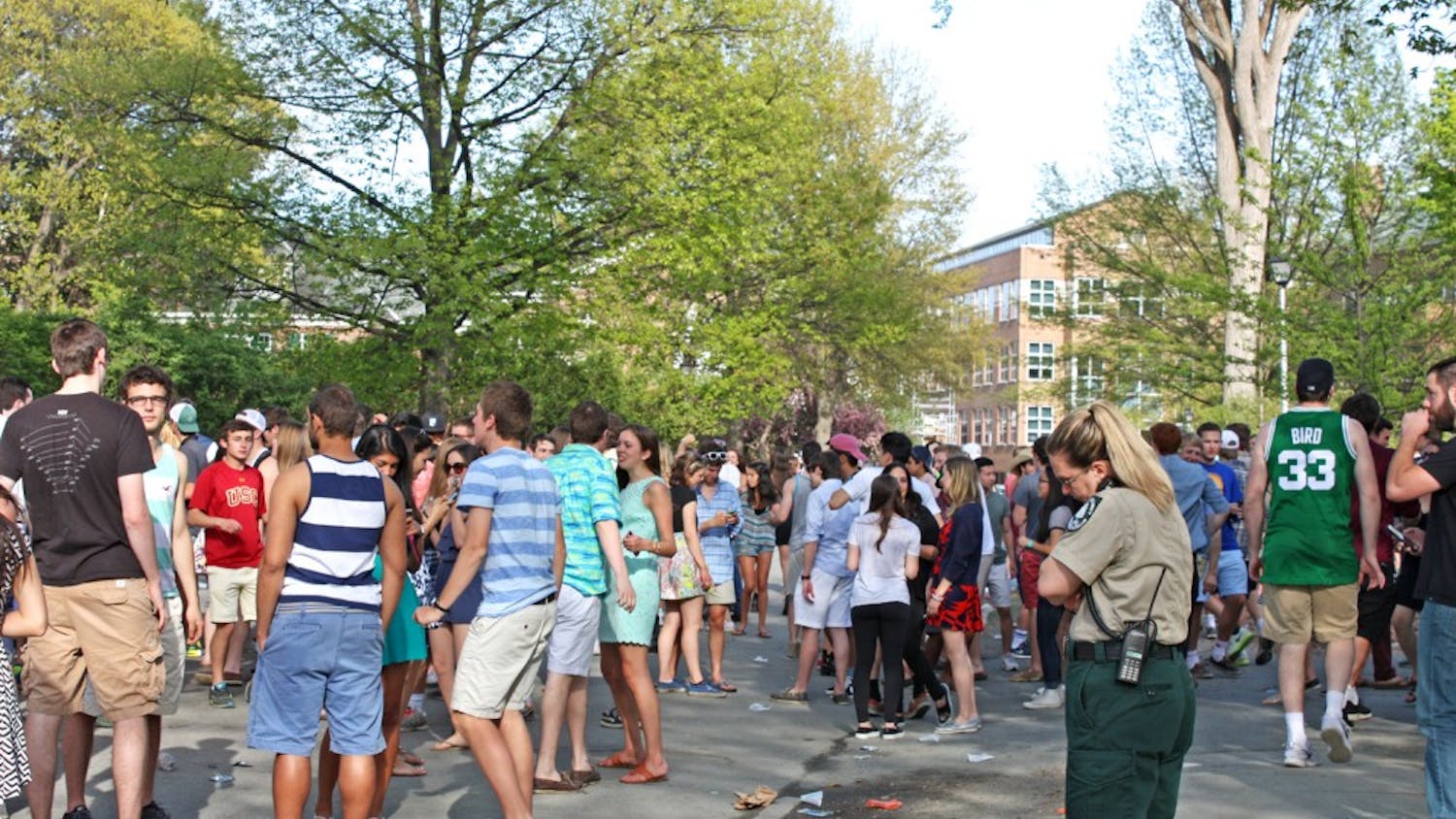Dartmouth College General Counsel Bob Donin hosted a panel discussion on affirmative action yesterday afternoon at the Tucker Foundation for a diverse crowd of 20 students, employees and faculty members as part of Tucker and Career Service's "Putting Your Values to Work" series.
After a brief speech detailing the legal history of race-sensitive admissions, Donin opened the forum up for discussion. Inquiries ranged from discrimination in the university setting to job advice for aspiring lawyers.
Donin, a graduate of Colgate University and University of Pennsylvania Law School, served as a partner for a Washington D.C. law firm and later in the Office of the General Counsel at Harvard University before being appointed General Counsel at the College in August of 2000.
"We are very much general practitioners," he said of his line of work, adding that the General Counsel of any major university is expected to address issues ranging from employment to the environment, student discipline to financial aid. However, one of Donin's primary areas of expertise resides in affirmative action.
Despite federal laws such as Title VI and Title XI, which prohibit discrimination based on ethnicity and gender, respectively, non-discrimination in the higher education admissions process has been a source of heated debate for over three decades.
"There is a great deal of confusion in this area," Donin explained.
The issue was thrust to the forefront in the famed 1978 Bakke v. University of California Board of Regents case, in which a student challenged the use of admissions quotas for minority students at the University of California at Davis Medical School.
The case was so controversial that even the Supreme Court failed to come to a majority decision, although then-Chief Justice Lewis F. Powell reported that, in his opinion, colleges and universities could take minority status into account in admissions as long as it was never the only criteria used.
The court's indecision created what Donin referred to as a "Balkanized" situation, with each national district adopted their own policy regarding race-sensitive admissions based on the rulings of their own courts in later cases.
Those disagreeing with the implications of Bakke argued that ethnic diversity could not feasibly be equated with ideological diversity, and that the institution of racial admissions quotas was equivalent to social stereotyping.
However, according to Donin, "Bakke is still the law of the land" here at Dartmouth.
"Colleges have extremely wide discretion in who they are going to admit," he said. And his assertion is evidenced by the fact that students of color constituted approximately one third of all admitted students this year, creating the potential for the most diverse class in the College's 232-year history.
Donin encouraged students who feel that they are being discriminated against in future work situations to either file a complaint within their corporations or utilize the resources of state or federal organizations.
One student inquired about the stress level of a professional litigator.
Donin responded by comparing his occupation to that of a "cardiac surgeon."
"When you have been practicing for a while in a profession ... I think you develop certain amount of detachment about it," he pointed out, adding that, in the workplace, he views both his successes and failures in a professional rather than personal light.
Another student asked Donin about the legal ramifications of the recent accusations of student protestors that admissions brochures falsely represent campus diversity and resource availability.
"It wouldn't really be a legal case," Donin replied, and suggested that disgruntled students bring their concerns to the Admissions Office directly.
Another audience member asked about the possibility of gearing affirmative action policies toward increasing socioeconomic rather than solely racial diversity on college campuses.
Donin said that, although a noble cause, such policies had the potential to introduce a wide array of both legal and non-legal problems into the complex and sometimes controversial process of college admissions.
The panel discussion came as part of the Tucker Foundation's "Putting your Values to Work" series, a program which offers alumni speeches, career fairs, employer information sessions and counseling services in order to encourage students to critically consider the place of values and ethics in the workplace.
The event itself was sponsored by the Tucker Foundation, Career Services, the Daniel Webster Legal Society and Gay, Lesbian, Bisexual and Transgender Programming.



